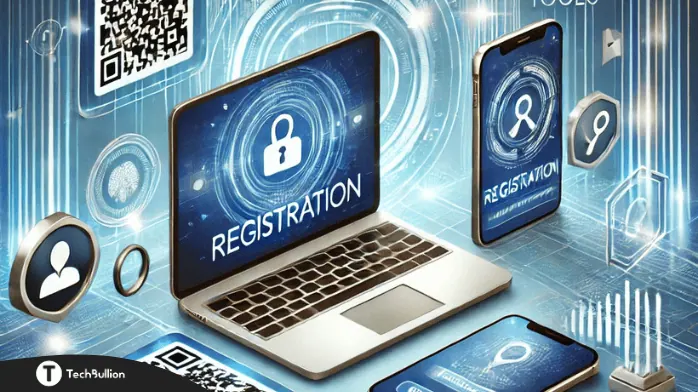
Technology is revolutionizing industries across the globe, and the event management sector is no exception. Among the many advancements shaping the field. Tech-Driven Registration Tools stand out as a game-changer. These tools are streamlining processes, enhancing user experiences, and empowering organizers to run more efficient and engaging events. In this article, we delve deep into how tech-driven registration tools are transforming event management and why they are indispensable for modern-day event planners.
Introduction to Tech-Driven Registration Tools
In the past, event registration involved long queues, manual data entry, and the risk of human error. However, tech-driven registration tools have revolutionized this process. By leveraging online platforms, mobile applications, and automated systems, these tools have made registering for events seamless and efficient for both attendees and organizers.
Whether it’s a corporate seminar, music festival, or virtual conference, tech-driven tools simplify the registration process, offering a user-friendly interface and a variety of customizable options. From personalized forms to real-time confirmations, these tools ensure a smooth start to any event.
Benefits of Tech-Driven Registration Tools
1. Streamlined Processes
One of the most significant advantages of tech-driven registration tools is the elimination of manual tasks. Event organizers can create and manage registrations effortlessly, reducing administrative burdens and saving valuable time. Automated systems handle tasks like sending confirmation emails, issuing e-tickets, and managing waitlists, ensuring a hassle-free experience for everyone involved.
2. Enhanced Attendee Experience
User experience is a top priority in today’s fast-paced world. With intuitive interfaces and mobile-friendly platforms, tech-driven tools make it easy for attendees to sign up for events in just a few clicks. Features like QR code-based check-ins, automated reminders, and personalized registration forms create a positive impression and boost attendee satisfaction.
3. Real-Time Data and Analytics
Modern registration tools do more than just collect attendee information. They offer real-time insights into demographics, preferences, and engagement levels. This data helps organizers tailor events to meet audience expectations, ensuring higher participation and better outcomes. For instance, integrating registration data with a customer relationship management (CRM) system allows for targeted marketing campaigns and personalized follow-ups.
Key Features of Tech-Driven Registration Tools
The effectiveness of tech-driven registration tools lies in their innovative features. Here are some of the must-have capabilities:
- Customizable Forms: Create forms tailored to specific events, capturing the necessary information while maintaining a professional appearance.
- Secure Payment Processing: Offer multiple payment options with robust encryption protocols to ensure data security.
- Mobile Compatibility: Ensure attendees can register and manage their participation using their smartphones or tablets.
- Automated Notifications: Keep participants informed with automated emails or SMS updates about registration status, event details, or changes.
- Capacity Tracking: Monitor event capacity in real time to manage overbooking or waitlists effectively.
- Multi-Language Support: Cater to a global audience by offering multilingual registration options.
Integration with Event Technologies
One of the standout features of modern registration tools is their ability to integrate seamlessly with other event technologies. This creates a unified ecosystem that enhances both in-person and hybrid events.
- Event Apps: Registration tools can sync with event apps, allowing attendees to access schedules, maps, and networking opportunities from a single platform.
- Virtual Event Platforms: For online or hybrid events, registration systems can link directly to virtual platforms, simplifying the transition from sign-up to participation.
- Check-In Systems: QR code-based check-ins linked to registration databases enable efficient crowd management at event venues.
These integrations not only improve the attendee journey but also provide organizers with comprehensive data for post-event analysis.
The Role of Automation
Automation is at the heart of tech-driven registration tools, significantly reducing manual effort and enhancing efficiency. Some of the key automated features include:
- Confirmation Emails and E-Tickets: Automatically sent upon registration, reducing delays and ensuring attendees have the necessary information.
- Waitlist Management: Automatically notifies attendees when spots become available, maximizing event capacity.
- Post-Event Surveys: Automatically distribute surveys to gather attendee feedback, helping organizers improve future events.
Automation not only saves time but also minimizes errors, ensuring a smooth and professional experience for all parties involved.
Enhancing Security and Compliance
With the increasing prevalence of data breaches, event organizers must prioritize security. Modern tech-driven registration tools come equipped with advanced security protocols to protect sensitive attendee information. Key security features include:
- Encryption: Ensures that all data, including payment information, is transmitted securely.
- GDPR Compliance: Adheres to international data protection regulations, building trust with attendees.
- Two-Factor Authentication: Adds an extra layer of security to prevent unauthorized access.
By choosing secure registration tools, organizers can safeguard their events against potential threats while enhancing their reputation.
Future Trends in Tech-Driven Registration Tools
The evolution of registration tools is far from over. Here are some emerging trends that will shape the future of event registration:
- Artificial Intelligence (AI): Predictive analytics powered by AI can help organizers anticipate attendee needs and preferences, enabling more personalized experiences.
- Voice Assistants: Integration with voice-activated technologies like Alexa or Google Assistant could allow attendees to register hands-free.
- Augmented Reality (AR): AR could transform the registration process, offering immersive experiences that engage attendees right from the start.
- Blockchain Technology: Ensures secure and transparent ticketing systems, reducing fraud and improving trust.
These advancements will continue to redefine the capabilities of tech-driven registration tools, ensuring they remain an essential asset for event planners.
Conclusion
Tech-driven registration tools are revolutionizing the event management industry, offering unparalleled efficiency, security, and attendee satisfaction. From automation and data analytics to seamless integration with other technologies, these tools are setting new standards for how events are organized and executed.
As technology continues to evolve, embracing these tools is no longer optional but necessary for staying competitive in the dynamic world of event management. Whether you’re planning a corporate conference, a music festival, or a virtual workshop, investing in the right registration tools can make all the difference. With their ability to streamline processes and enhance the attendee experience, tech-driven tools are truly the future of event management.


